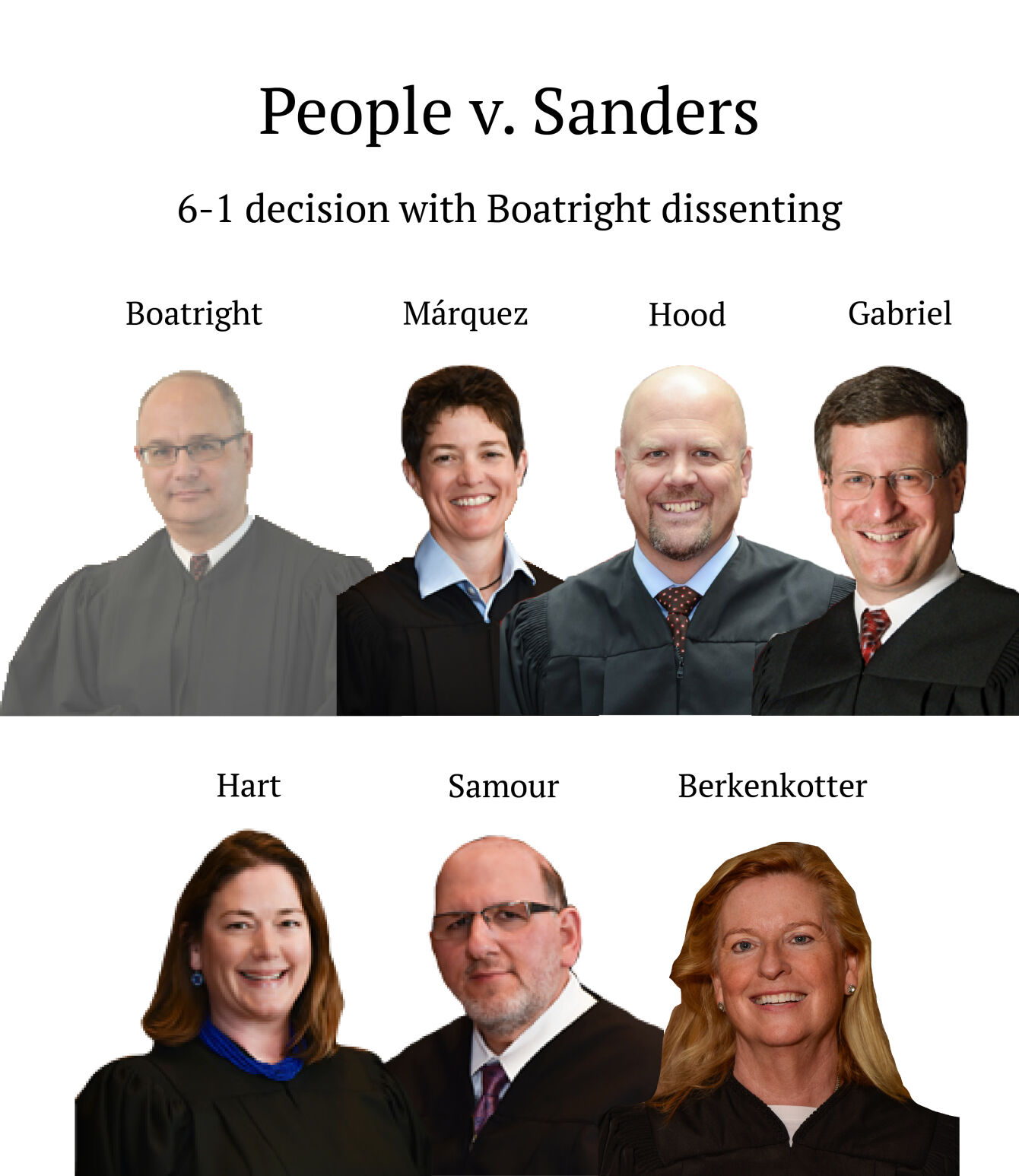Colorado Supreme Court rebuffs inadequate challenge from DA’s office to trial judge’s order

The Colorado Supreme Court on Monday refused to overturn a Fremont County judge’s order barring prosecutors from using a defendant’s statements at his trial, citing the district attorney’s office’s failure to address one of the key legal issues.
The 6-1 decision marked the second time in two weeks the state’s highest court shot down an appeal from the office of District Attorney Linda Stanley because of the prosecution’s own missteps.
Following the U.S. Supreme Court’s landmark decision of Miranda v. Arizona, law enforcement must give a “Miranda warning” before interrogating a suspect in custody, notifying them of their constitutional rights to remain silent and to consult with an attorney. A suspect’s statements must be excluded, or suppressed, from trial if they are involuntary or the product of police coercion.
The 11th Judicial District Attorney’s Office appealed a trial judge’s suppression order directly to the state Supreme Court, arguing the judge wrongly determined John Sanders was interrogated “in custody” during the 90 minutes a detective talked to him about his alleged sex assault on a child.
However, Justice Monica M. Márquez observed in a Dec. 18 opinion, the trial judge believed suppression was warranted not only because police interrogated Sanders in custody without a Miranda warning, but because his statements were made involuntarily. The district attorney’s office made virtually no argument why Sanders actually spoke to police voluntarily.
“Thus, even if we were to agree with the (prosecution) that the district court erred in its custody determination,” Márquez wrote, “we would be required to affirm the district court’s order on the ground that Sanders’s confession was not voluntary.”
Chief Justice Brian D. Boatright dissented, although he, too, conceded the prosecution “did not provide robust arguments regarding voluntariness.”

The decision comes after a majority of the court agreed last week that a trial judge in the same jurisdiction properly reduced the severity of a murder charge to address prosecutors’ pattern of withholding evidence under Stanley’s leadership. Stanley is herself under investigation for allegedly violating seven rules of professional conduct, KRDO reported in October. She is not seeking reelection next year.
In September 2020, Detective Timothy Smelser traveled to Kansas, where Sanders lived, to investigate Sanders’ alleged sexual assault on a child relative that previously took place in Fremont County. Smelser spoke to Sanders’ wife, who confirmed she and Sanders would come to the police station to talk.
Smelser never gave a Miranda warning to Sanders in the interrogation room. After being charged, Sanders moved to bar his statements from being used against him at trial.
In July, District Court Judge Lynette M. Wenner issued an order suppressing the entirety of the interrogation as evidence. She noted that:
? Smelser told Sanders there are two types of sex offenders – “ones that can be saved and ones that cannot”
? Smelser said he would likely find DNA evidence of Sanders’ crime
? Smelser said he knew Sanders was guilty, but needed to know “which kind” of offender he was
? Smelser said at least 21 times that he knew Sanders committed the crime
“Detective Smelser repeatedly and relentlessly told Mr. Sanders that he knew Mr. Sanders was guilty,” Wenner wrote, and that the detective’s words “were designed to elicit a confession.”
She determined Sanders was subjected to interrogation in custody. Further, his statements were involuntary given Smelser’s promises, confrontational approach and “arguably false evidence” used during the interview.

The prosecution appealed to the Supreme Court, taking issue with Wenner’s analysis. Although Deputy District Attorney Taylor Smith used the term “voluntary” or some variation 14 times in her brief, she did not argue why the Supreme Court should find Sanders’ statements to be voluntary.
Sanders’ lawyers pointed out the deficiency in response, and argued the appeal “must fail” because of the oversight.
The court’s majority agreed with Sanders. The prosecution presented “no case law relevant to the independent assessment of voluntariness,” Márquez wrote, meaning Wenner’s order would stand even if the justices agreed with the other arguments.
Boatright indicated he would have overturned Wenner’s order suppressing Sanders’ entire interrogation. He saw the interview as taking place in multiple phases, with only the final minutes raising concerns about coercion. Boatright also did not believe Wenner adequately explained why Sanders’ statements were made involuntarily.
Although the prosecution provided meager reference to voluntariness, “I don’t think anyone is left wondering what the question is here,” he added.
The case is People v. Sanders.












